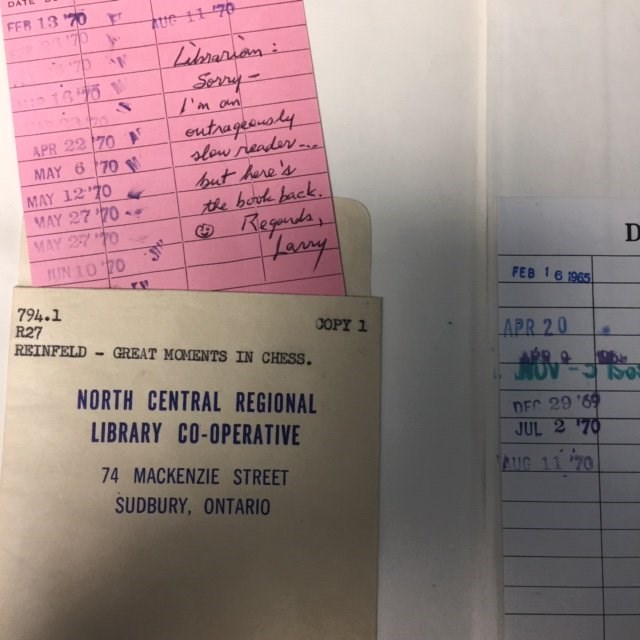Sault Ste. Marie Public Library overdue fines will soon be a thing of the past.
Library officials are preparing to announce later this week that they're going fines-free, writing off more than $35,000 in unpaid overdue fines.
The change, approved unanimously this week by the library's board, will take effect on Aug. 31, which is Sault Ste. Marie Public Library's 125th birthday.
In practise, though, the library has suspended fines on overdue materials since March 17, 2020 – the day the coronavirus pandemic forced it to close.
"Over the last few years there has been a movement across North America to eliminate fines for some or all classes of library materials," say library chief executive officer Matthew MacDonald and business administrator Rosanne Chan in a written report.
"They were originally introduced as a motivator for customers to return materials in a timely manner. However, research has shown that fines do not improve the returns rate of materials and, as an unintended consequence, disproportionately affect vulnerable users of the libraries, including low-income residents and families with children."
"The board should note that there are already several groups for which it does not charge overdue fines. These groups include seniors (ages 60 years and older) and visiting library service patrons. The principle behind exempting these groups is that they are considered vulnerable and often have fixed incomes that are very limited. By this reasoning, children and youth could easily qualify as exempted groups for overdue fines."
"The board should also consider that there are also many vulnerable groups that exist in the 18- to 59-years-old age bracket. These include but are not limited to disability, minorities, and those with low social-economic status. The board cannot easily separate these groups without discriminating one or the other. The most fair solution would be to eliminate fines altogether, with some exceptions," MacDonald and Chan recommended.
In 2019, the library collected more than $15,000 in fines for the year.
Going forward, fines will still be charged on express reads, interlibrary loans and specialty collections.It's expected library patrons will also still be required to pay for lost books and other library materials.
The elimination of fines is intended to optimize staff time and efficiency, with time and effort previously used to enforce rules now applied to productive projects.
Libraries that have gone fine-free have often seen items returned that were long considered lost.
"Along with those returned materials were return patrons who avoided the library because of blocked library privileges and/or embarrassment over owing the library money but being unable to afford the payments," MacDonald and Chan said.
They were uncertain, however, how City Council might view the change.
"The board cannot be sure how council might react to learning that the library is eliminating fines. Some councilors may applaud the initiative. Others may question why the library would eliminate a revenue stream, especially after being denied a 0.5 per cent increase to the budget at the last budget deliberations. Whatever the board decides will likely influence their decisions at the next budget deliberations."
This week's announcement is expected to emphasize that Sault Ste. Marie Public Library, in its continuing efforts to eliminate barriers, is joining hundreds of other libraries across Canada and the United States in saying no to fines and declaring that it's free to all.
